It’s been 10 years. Platinum Games was founded on 1 August 2006. Since then, the Osaka-based game company has churned out a slew of memorable titles. In a recent interview with Kotaku, Platinum Games co-founder Atsushi Inaba spoke about his past and the studio’s future.
[Image: Platinum Games]
Platinum Games has developed an array of titles, including the Bayonetta series, Vanquish, The Wonderful 101, MadWorld, Transformers: Devastation, and Metal Gear Rising: Revengeance. Currently, the studio is working on Nier Automata and Scalebound.
Note: I talked to Inaba at this year’s BitSummit. At the interview, I was greeted by not one but two translators. Both were nice chaps, but I told them I didn’t need their services as I would be interviewing Inaba myself in Japanese. However, I invited them to ask any questions they wanted during the interview. One of the translators, Aaron, did ask a good one that I hadn’t even considered, and I thank him for that.
Below is a transcript of the conversation, which I’ve divided and arranged into separate sections for, hopefully, better readability and clarity.
BECOMING A GAME DEVELOPER
KOTAKU: Before Platinum was formed, when did you go to work at Capcom?
INABA: I went to Capcom in…1998. Before that, I worked at a different game company [SNK]. But I went to Capcom in 1998.
KOTAKU: Why did you want to make games?
INABA: When I was a kid, I really got into video games. Around the time I was 12, I didn’t think there was anything more interesting than video games. That was about 30 years ago. At that time, games were really taking off, and you started seeing these superstar game creators. I thought, if you make video games, you could make a ton of money and you could make a ton of people happy. It became my dream.
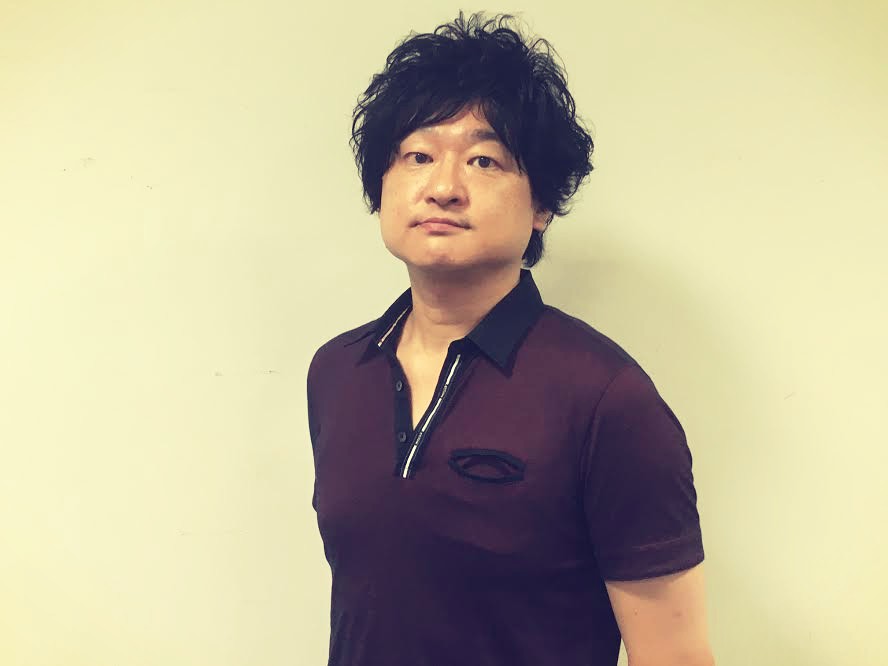
Atsushi Inaba. [Photo: Brian Ashcraft | Kotaku]
KOTAKU: Who were the superstar game creators at that time?
INABA: Let’s see… Koichi Nakamura at Chunsoft. Also, Yuji Horii of Dragon Quest fame. Also, Sakaguchi. These game designers were still quite young and just making it big. So, for me as a young kid, I didn’t just want to play video games, but also make them.
I enjoyed playing video games, so that’s why I got a computer. And since it was a computer, you could program and mod things, and that’s really where it all started. Then, after that, instead of just modding things, I began making my own games. I thought making games was a blast. Originally, when I started in this business, I was a programmer. After that, I changed to producing, but programming is where I got my start.
I’m incredibly happy that I’ve been able to fulfil my childhood dream.
KOTAKU: That is wonderful. What kind of computer did you use as a kid?
INABA: At that time, I couldn’t get an Apple II, so instead, I got an NEC 8801. At that time, it was well-known as a gaming PC. It was also really expensive, and my parents bought it for me. I told them, ‘When I become a game creator, I’ll be rich and buy you both a house.’ I begged them for it, and they were nice enough to buy it for me.
KOTAKU: You had nice parents.
INABA: They were so nice. But, I still haven’t bought them a house.” (laughs)
KOTAKU: “Oh man, you gotta buy them a house. How much did that computer cost?
INABA: Let’s see. So, that was 30 years ago. The computer itself was around 220,000 yen. Pricey.
[Note: In comparison, the Famicom retailed for 14,800 yen at that time.]
KOTAKU: And your parents were just like, ‘Here’s 220,000 yen because you want to make games’?
INABA: No, no. They gave me an earful and got annoyed, but I didn’t give up and was persistent. I kept asking them for a computer. ‘I want to make games, I want to make games, I want to make games,’ I kept saying. And my parents, I guess you’d say, gave in. They were like, ‘If it means that much to you, then we’ll buy it for you.’ But I kept my promise of becoming a game creator. It wasn’t a waste of their money.
KOTAKU: Yeah, but you didn’t get them their house yet.
INABA: That’s correct, that is correct. I told my dad I’d get him a house. I told my mum that I’d get her a diamond ring. (laughs) This was what we talked about when I was in grade school. I still haven’t gotten her a diamond ring, either. (laughs)
KOTAKU: Wooooah. (laughs)
INABA: Well, you know, it’s difficult. (laughs)
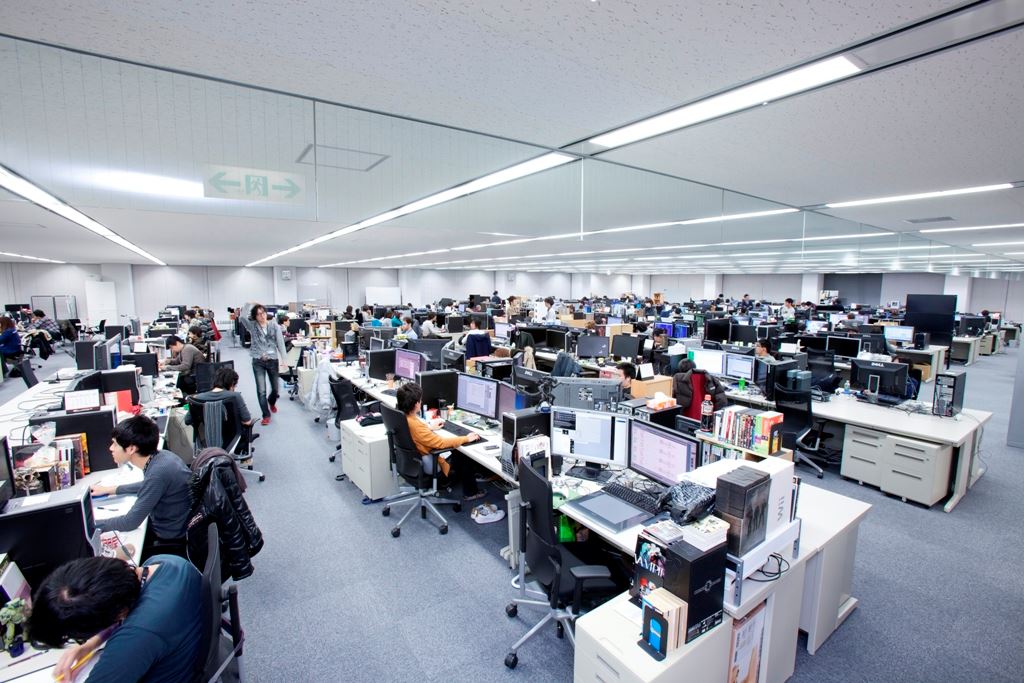
[Image: Platinum Games | Facebook]
KOTAKU: Indeed. So, after learning programming, did you go to some kind of specialty college to learn game making?
INABA: No, I didn’t go to a specialty school of that sort. I just studied computer programming at school.
KOTAKU: You worked at both SNK and Capcom during the 1990s. That’s when arcades were incredibly popular in Japan.
INABA: Oh yes. When I entered the game industry, Street Fighter II was a smash hit. This was the period when arcades were probably at their peak in Japan. You know, you had Sega with AM2 making titles like Virtua Racing and Virtua Fighter. That was the era.
At that time, game consoles weren’t quite as a lively platform as arcade games were. So, within developers at that time, arcade developer was, like, the main street of development were the really important devs worked. That was then.
KOTAKU: And then game consoles took over, and now, mobile games are exceedingly popular.
INABA: That’s correct.
A DECADE OF PLATINUM GAMES
KOTAKU: How long has Platinum Games been around?
INABA: Ten years.
KOTAKU: So, during that ten years, the Japanese game industry has changed quite a bit.
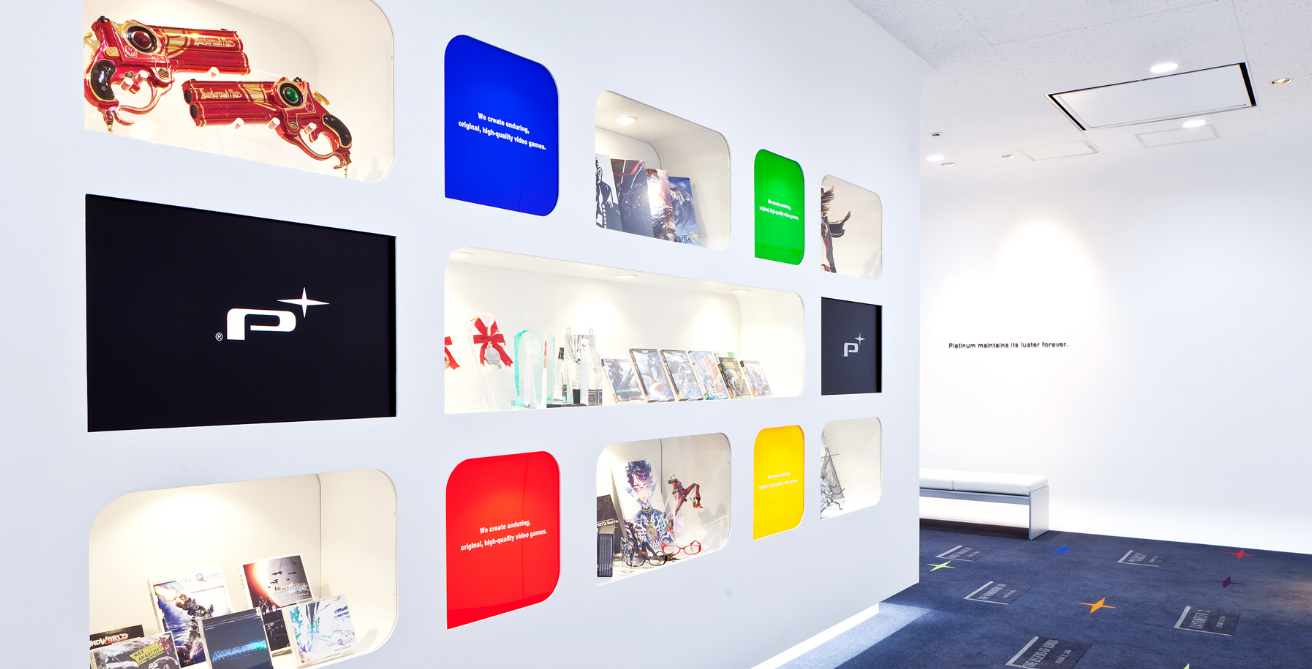
[Image: Platinum Games]
INABA: Yeah. It has changed. It’s become that video games don’t sell as much, and the technological abilities of Japanese game developers, especially in regards to CG and in comparison to Western game developers, have dropped. There have been big changes. So, it’s unfortunate, but Japan has had to catch up in many regards.
KOTAKU: But, like, fifteen years ago, wouldn’t you say the ability of Japanese studios to do CG was quite high?
INABA: Hrm. Japan is good at cutting corners. So, in the West, when they do these CG scenes, they really study how it would work. They study the light and the calculations and have the CG rendering according to that. But in the past, you couldn’t create data for all those sorts of calculations, because the game would be too massive to run on consoles.
So, Japanese devs relied more on how things looked. If the CG looked good, then it was fine. But, as consoles became more and more advanced, the ones who had actually studied these things and made these calculations had better technological abilities. That’s the difference, and I think it’s a big difference.
KOTAKU: If you look at all the titles that Platinum Games has made over this past ten years, the variation is quite large. There’s a wide swath of various titles. Was this done on purpose?
INABA: First of all, we’re the ones who decide what we are going to make. It’s just that we want to do lots of different things. That’s the biggest reason.
KOTAKU: Do you think it’s difficult, then, to pin down what Platinum Games’ style is? Or what Platinum Games-esque is? For example, if someone says ‘Square Enix,’ you should have a mental picture of what kind of game it’s likely to be. Now, I think this is a strength, but for Platinum Games, there is a wider berth of possibility.
INABA: Well, I think one thing is we are a company that excels at making action games. This is a strength for us, and it’s something we value highly. But then, I think it’s good to have different kinds of variations on that strength.
KOTAKU: So, within these past ten years, Platinum Games has made various titles. Is there interest in making sequels, such as making [Metal Gear] Rising 2?
INABA: Rising? That’s Konami’s IP.
KOTAKU: Right.
INABA: And Kojima Productions [at Konami] no longer exists.
KOTAKU: That’s correct.
INABA: We don’t even know what will happen next. That’s just looking at this from our point of view.
KOTAKU: Ah, yeah. But, of course, Konami still has the game’s licence.
INABA: Yeah.
KOTAKU: Well, Konami still has the IP and [Platinum Games] did a good job making Rising. So, if you had the chance to making Rising 2, would you want to make it?
INABA: For any time, if we have the chance to make a sequel, we want to do it. There is no title we don’t want to make a sequel for. So, of course, we want to make Bayonetta 3 and Vanish 2. So, yes, we want to make sequels.
KOTAKU: What was the name of the president at Platinum Games who recently stepped down?
INABA: Minami-san.
KOTAKU: Ah, right. Minami-san. In February or March, I remember reading an interview in Famitsu in which Minami san was talking about what kind of company he wanted Platinum Games to become in the future. It was a great interview and what he said was terrific. Then, suddenly, a few months after that, he quit. What the heck happened?
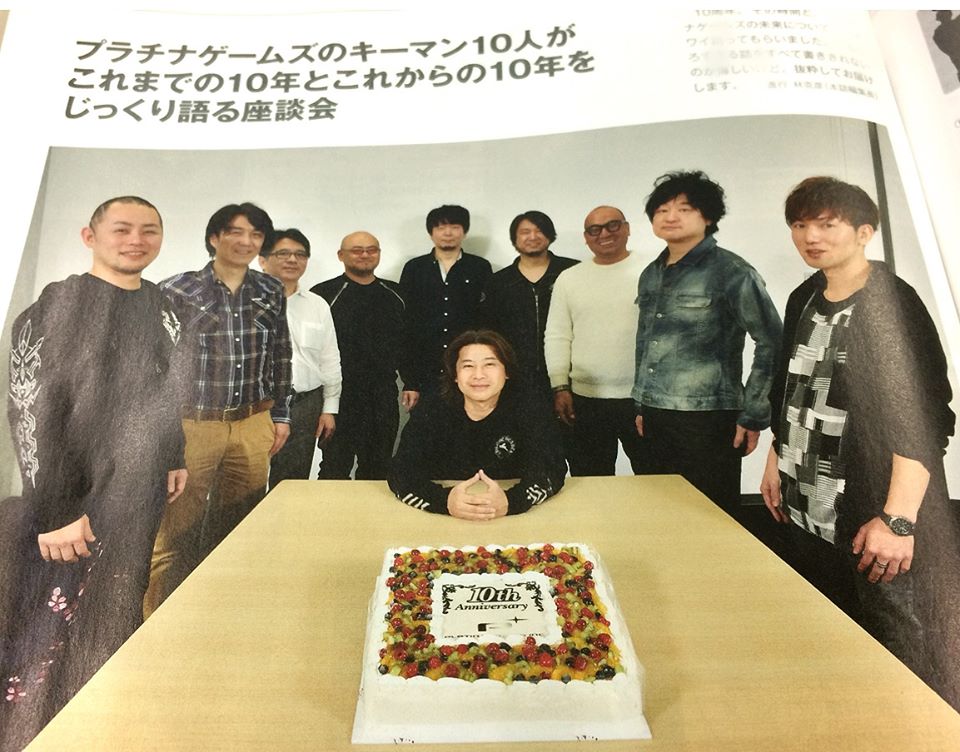
[Image: Platinum Games | Facebook]
INABA: Well, that first ten years is a milestone. And a lot was accomplished during those ten years [under Minami san], so for our former president, he seems to have felt that after reaching that milestone, he really felt like he wanted to do something else.
KOTAKU: Then, it wasn’t like things at Platinum Games were going badly?
INABA: Oh no, it was nothing like that. If anything, things at the company are going great.
THE FUTURE OF PLATINUM GAMES
KOTAKU: It’s long been that the Japanese games industry has been centered around consoles. But you’ve just mentioned how you are interested in releasing titles on PC. Do you think the Japanese game industry has changed regarding PC?
INABA: Perhaps. But to be honest, we’re good friends with Valve and often go to their studio. We go there, hang out, talk about many different things, and we are very interested in Steam and would definitely like to release games on Windows. Right now, we’re at a place in which publishers ask us to make titles. So, if the publisher doesn’t want to release a PC version, then there won’t be a PC version. It really comes down to that.
AARON: Is there any possibility that Vanquish will get a PC version?
KOTAKU: It would be a good idea to release Vanquish on PC.
INABA: (smiling) Hrm. I wonder… If you stop recording, I can talk about that. (laughs)
KOTAKU: Platinum Games is very much a global game studio. If you compare Platinum to, say, your typical Japanese studio, Platinum seems very different.
INABA: Thank you very much.
KOTAKU: Like, in Japan, there really aren’t that many game companies that say they want to make PC versions.
INABA: That certainly seems to be true. I think the reason for that is that in Japan, the PC versions don’t sell much. Outside Japan, they do, but within the country, they do not. But, if you look aboard, everyone is playing on the PC. It’s something you cannot ignore.
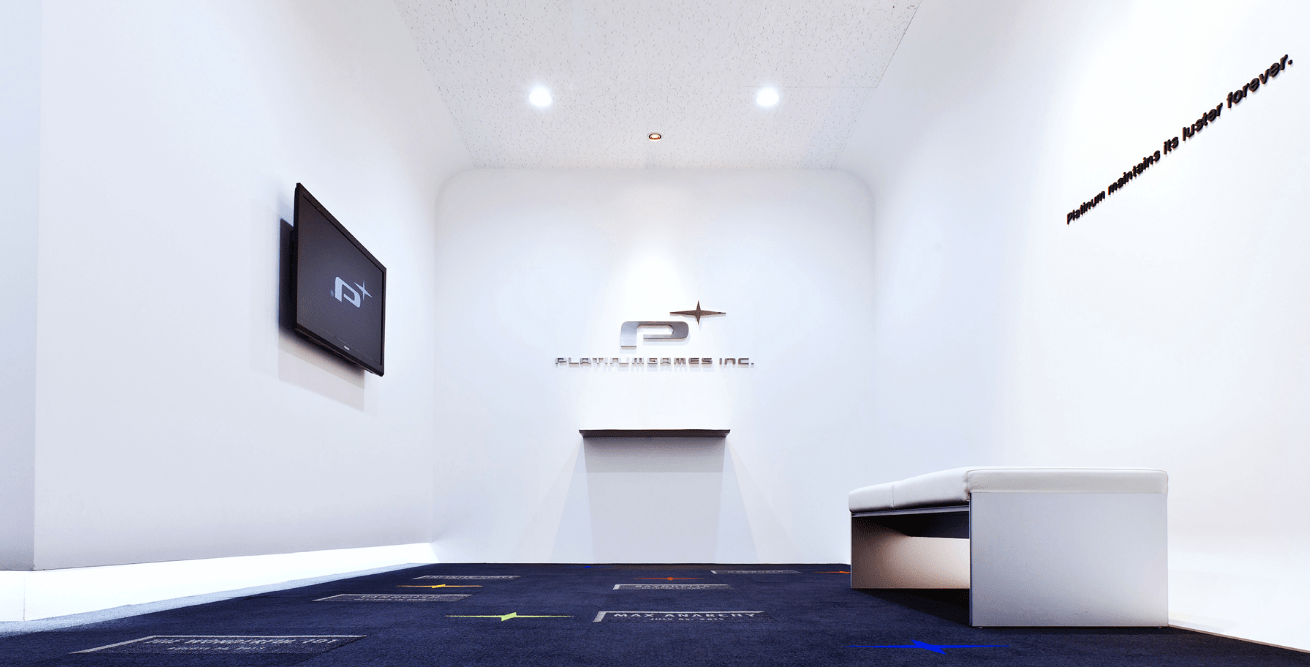
[Image: Platinum Games]
KOTAKU: So, do you think because Platinum Games has had the opportunity to hang out at Valve that there has been some kind of influence?
INABA: Well, when we go to Valve, they’re always showing us new things, such as Steam VR while it was still in development. It was quite impressive.
KOTAKU: So for you, someone who has wanted to make games since he was a child, what do you think of mobile games?
INABA: Since I want to make [game] software, I think even smartphones are a wonderful platform. I’d like to make things that run on it. However, I think it’s a platform that is still being worked out. I think after a number of years, as a platform it will come into its own.
I think increasingly it will become such that only the very best stuff survives and the stuff that isn’t quite up to snuff will die off….We’re definitely interested in mobile. We also think if you put games out on Steam and whatnot, you can do interesting things. We’d like to do that.
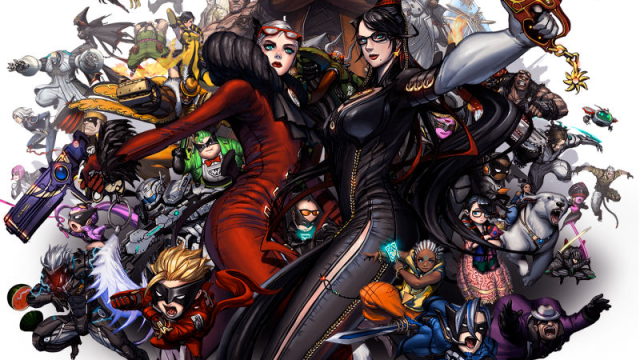
Comments
2 responses to “What’s Next After 10 Years Of Platinum Games”
Good stuff, we dont get enough interviews from Kotaku
Whoa vanquish on pc. Yes please